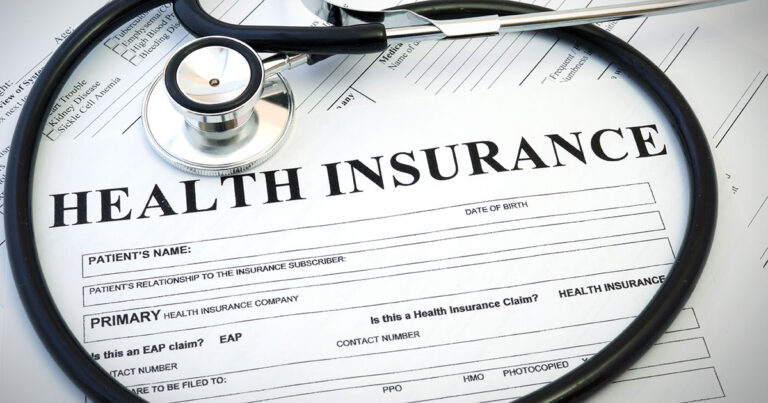Vision Insurance: Perfect Ways to Protecting Your Eye Health and Saving on Costs
Vision insurance is designed to reduce the cost of eye care and make it easier for individuals to maintain healthy eyesight. While many people assume it only covers eye exams or glasses, a good vision insurance plan often includes a wide range of benefits that can help you protect your vision, detect early signs of diseases, and manage eye health over time.
Eye care is just as important as regular health checkups. Vision problems can develop gradually, making them easy to overlook until they become serious. By having vision insurance, you gain access to professional care, early detection of conditions, and cost savings on essential services.
In this guide, we will explore everything you need to know about vision insurance including what it covers, its benefits, how to choose a plan, and tips for maximizing your coverage.
What Does Vision Insurance Cover
The coverage you receive will depend on your plan, but most vision insurance policies offer benefits in these key areas.
Routine Eye Exams
Regular eye exams are the foundation of good eye health. They help detect vision changes early and can reveal signs of conditions such as glaucoma or diabetes. Most plans cover one exam per year or every two years.
Prescription Eyewear
This includes glasses, contact lenses, and prescription sunglasses. Coverage may be in the form of a discount or an allowance towards the purchase price.
Lens Enhancements
Certain plans also cover upgrades like anti-reflective coatings, blue light protection, progressive lenses, and scratch-resistant coatings. These enhancements improve visual comfort and durability.
Contact Lens Fittings
If you wear contact lenses, many plans cover the cost of fittings and evaluations to ensure your lenses are the correct prescription and fit comfortably.
Screening for Eye Diseases
Some plans include screenings for serious eye conditions such as cataracts, macular degeneration, and diabetic retinopathy.
The Benefits of Having Vision Insurance
Having vision insurance offers more than just cost savings. It can improve your overall quality of life and health outcomes.
Early Detection of Health Issues
Eye exams can reveal health problems like high blood pressure, diabetes, and certain neurological conditions before symptoms appear.
Improved Quality of Life
Clear vision allows you to work, drive, read, and enjoy life without unnecessary strain. Correcting vision problems can reduce headaches and eye fatigue.
Affordable Access to Eye Care
Without insurance, the cost of exams, glasses, or contacts can be high. Vision insurance lowers these expenses, making regular care more affordable.
Encourages Preventive Care
Knowing you have coverage encourages you to schedule regular checkups instead of waiting until a problem arises.
How to Choose the Right Vision Insurance Plan
Choosing the right plan requires a bit of research. Here are factors to consider before making a decision.
Network of Providers
Check if the plan has a network of optometrists and ophthalmologists in your area. Using in-network providers usually reduces out-of-pocket costs.
Coverage for Eyewear
Look at the allowance or discount for glasses or contacts. Some plans offer more generous coverage, which can save you money if you need premium lenses or designer frames.
Frequency of Benefits
Some plans allow you to get new glasses every year, while others limit this to every two years. Consider how often your prescription changes.
Premiums vs Savings
Compare the cost of premiums with the amount you will save on eye care each year. A good plan should save you more than you spend on it.
Additional Perks
Some vision plans include discounts on LASIK surgery or other elective vision correction procedures.
How to Maximize Your Vision Insurance Benefits
Getting the most from your coverage requires a bit of strategy. Here are ways to make your plan work harder for you.
-
Schedule Your Exams on Time
Do not let your annual or biannual exam benefit go unused. Regular exams help maintain eye health and catch problems early. -
Use Your Full Eyewear Allowance
If your plan offers a set allowance for glasses or contacts, use it. Even if you do not need new glasses, you can get prescription sunglasses or an updated pair for backup. -
Take Advantage of Discounts
Many plans offer extra savings on additional pairs of glasses or specialty lenses. -
Understand Your Plan’s Renewal Date
Knowing when your benefits reset can help you plan purchases strategically so you get the most value each year. -
Check for Wellness Programs
Some insurers provide resources and tips for eye health, which can be useful for long-term care.
The Cost of Vision Insurance
Vision insurance is often very affordable compared to other types of health coverage. Premiums can range from just a few dollars a month to more comprehensive plans that cost slightly more.
The true value comes when you compare the cost of the policy to the out-of-pocket expenses you would face without it. For example:
-
A typical eye exam without insurance can cost between $50 and $250 depending on location and the type of specialist.
-
Prescription glasses can easily range from $100 to $400 or more.
-
Contact lenses can cost hundreds of dollars per year depending on the type you use.
When you add these costs together, it is easy to see how vision insurance can quickly pay for itself.
Who Needs Vision Insurance
Vision insurance is beneficial for almost everyone, but it can be particularly valuable for:
-
Families with children who may need frequent prescription changes as they grow.
-
People with existing eye conditions who require regular monitoring.
-
Individuals who wear glasses or contact lenses and want to reduce ongoing costs.
-
Older adults who are at higher risk for age-related eye diseases.
-
Anyone who values preventive care and wants peace of mind about their vision health.
Common Misconceptions About Vision Insurance
It Only Covers Glasses
While glasses are a major benefit, most plans also cover exams, screenings, contact lenses, and sometimes surgical discounts.
It Is Too Expensive
In reality, vision insurance is one of the most affordable types of coverage available.
Healthy Eyes Do Not Need Coverage
Even if you have perfect vision now, eye exams can detect hidden health problems early.
Final Thoughts on Vision Insurance
Vision insurance is more than just a way to save money on glasses. It is a tool that encourages preventive care, ensures access to quality eye exams, and helps detect serious health issues early. Whether you have perfect vision or rely on corrective lenses, the benefits of having vision insurance go far beyond the financial savings.
By choosing the right plan and making full use of your benefits, you can protect your eyesight, improve your quality of life, and enjoy peace of mind knowing your vision care is covered.






